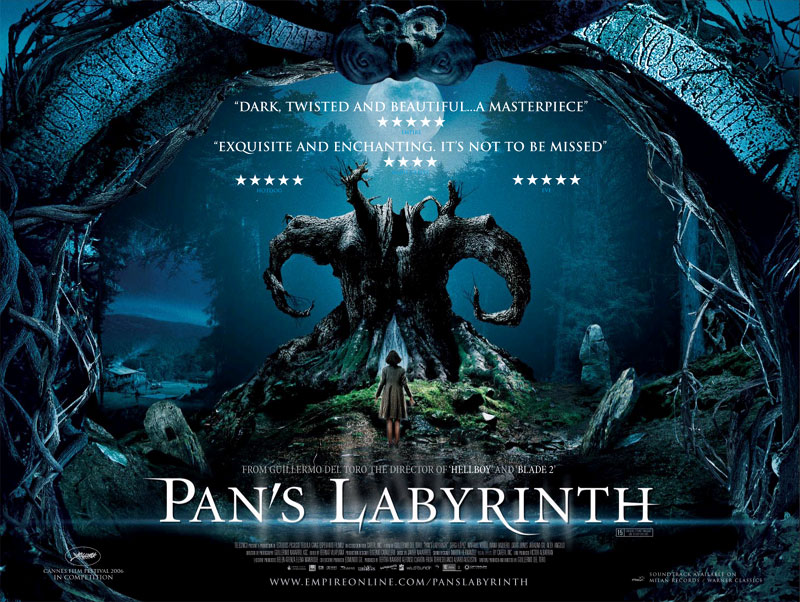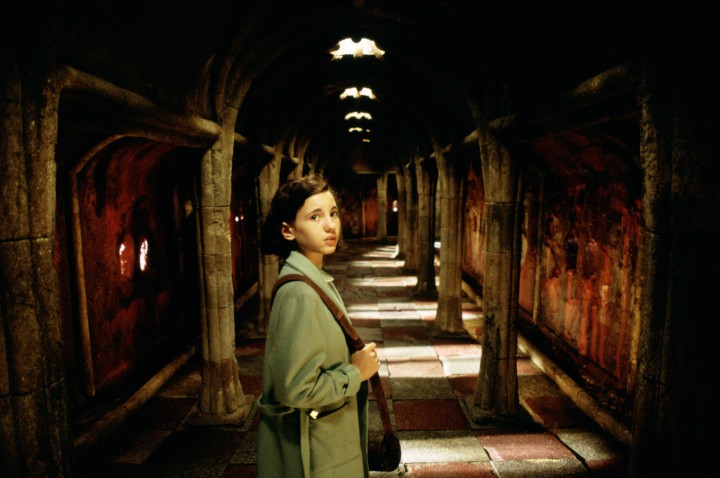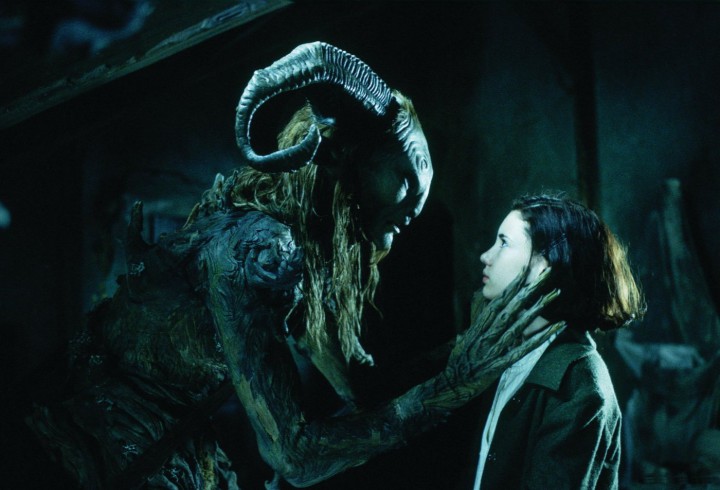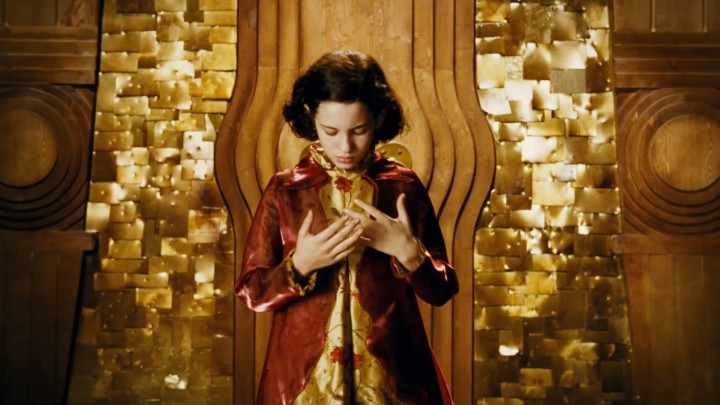Pan’s Labyrinth is hard to nail down in terms of genre. It’s a horror film, but only in part. It’s a fairy tale, but it’s more than that. It’s a slap at what Franco’s regime did to Spain, but it goes further to indict all forms of fascism — past and present, though its allegorical condemnation of modern fascism is slyly suggested rather than stated. Call it a passionate, horrific, sociopolitical fairy tale, if you like. It’s all this — and it’s also brilliant filmmaking.
On its simplest level, Pan is about the death of innocence. The story follows Ofelia (Ivana Baquero, Fragile), a young girl dragged by her pregnant mother, Carmen (Ariadna Gil, Welcome Home), to a Franco outpost in the Spanish mountains where her stepfather, Captain Vidal, has been posted to deal with the remaining Loyalists hiding in the hills. Once in this strange, inhospitable place, she finds herself drawn into the strange world of a nearby labyrinth … where she meets a faun. The faun informs her that she’s really the lost princess of the underworld — her soul having traveled through many forms, having at last come to the place where she can re-enter her kingdom. However, she must perform three tasks in order to prove that she hasn’t devolved into a mortal. In the meantime, the conflict between the two factions continues, intruding not just on Ofelia’s fantasy world (if it is a fantasy), but on her reality as well, especially as her mother grows increasingly ill by the day.
The brilliance of del Toro’s approach to the material is multifold. His general refusal to state where fantasy leaves off and reality begins is one of the film’s strongest points — and that fantasy is never quite dispelled, grounded as it is in a kind of innocent wonderment that cannot be killed, and which leaves its mark on the world. Moreover, del Toro understands the inherent darkness of fairy tales — and he makes his own fairy tale very dark indeed. (The sequence with the eyeless creature at the banquet table is the single creepiest, most intense scene of pure horror I’ve seen in years.) He grasps the basic concept that these fancifully horrific tales offer clues as to what awaits a child in less fantastic, yet often more horrific, form in adulthood. The violence is similar in both worlds. Fantasy merely offers more hope of things being put right — and that may simply be because childhood blunders are committed in ignorance, not in cruelty and arrogance. It’s impossible to do this film justice in the space here. It’s simply too complex, too layered and too full of magic. Rich, deeply disturbing, often brutally violent, yet amazingly beautiful, Pan’s Labyrinth is everything movies should be and almost never are. Yes, you have to read subtitles, but what a small price to pay. Films this extraordinary don’t come along every day — or even every decade.
The Thursday Horror Picture Show will screen Pan’s Labyrinth Thursday, Nov. 19, at 8 p.m. in Theater Six at The Carolina Asheville, hosted by Xpress movie critic Ken Hanke.







Before you comment
The comments section is here to provide a platform for civil dialogue on the issues we face together as a local community. Xpress is committed to offering this platform for all voices, but when the tone of the discussion gets nasty or strays off topic, we believe many people choose not to participate. Xpress editors are determined to moderate comments to ensure a constructive interchange is maintained. All comments judged not to be in keeping with the spirit of civil discourse will be removed and repeat violators will be banned. See here for our terms of service. Thank you for being part of this effort to promote respectful discussion.